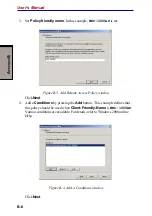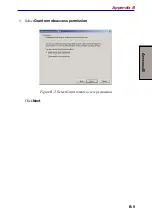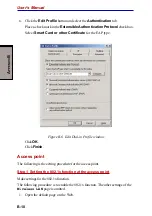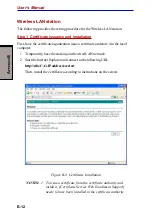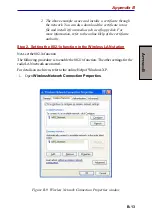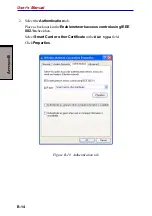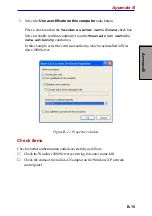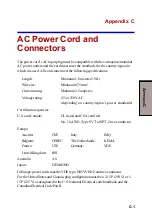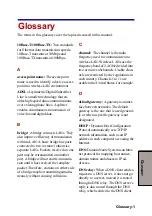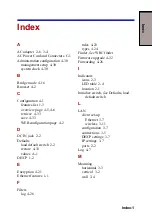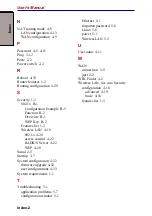
G
LOSSARY
Glossary-3
routing table
medium reservation: Reserving the
access point for a specific terminal and
notification to other terminals not to
call. It is used to avoid the hidden termi-
nal problem.
N
NAT: Network Address Translation
enables multiple users to simultaneous-
ly share a single global IP address.
When a computer accesses the Internet,
the NAT function uses a table to con-
vert global and local IP addresses and
ports.
network name: A network name identi-
fies groups communicating with each
other over a Wireless LAN.
P
port: The port (port number) is used to
determine which application should
handle a TCP or UDP packet.
port forwarding: Connects a local IP
address and port number to a global
address. When a client computer issues
a request to the Internet, the request
goes through the device, which uses
the NAT table to connect the client’s
local address and port number to a
global address. The reply is received by
the device which relays it to the client
computer.
PPP: PPP is a protocol to authenticate
computers communicating with each
other in a network, such as a personal
computer connected by phone line to a
server.
PPPoE: Point-to-Point Protocol over
Ethernet.
protocol: A set of rules used for trans-
mitting data.
Proxy server: A proxy server acts as a
connection point between a network
and the Internet and serves as an agent
for computers in the network. Proxy
server can refer to either a computer or
to a software server.
R
RADIUS: A verification system for
client-server dial-up connections. It
verifies the user making a dial-up con-
nection to the access server.
Reject unspecified network name: A
function that restricts access to the
LAN to terminals that have the same
network name as that of the access
points.
router: A device (or software pack-
age) that handles the connection be-
tween 2 or more networks. Routers
spend all their time looking at the
destination addresses of the packets
passing through them and deciding
which route to send them on.
routing: Determining the path for a
packet to travel and managing the trans-
mission of the packet.
routing table: A table containing rout-
ing information such as network ad-
dress, the next relay router and hop
count.


